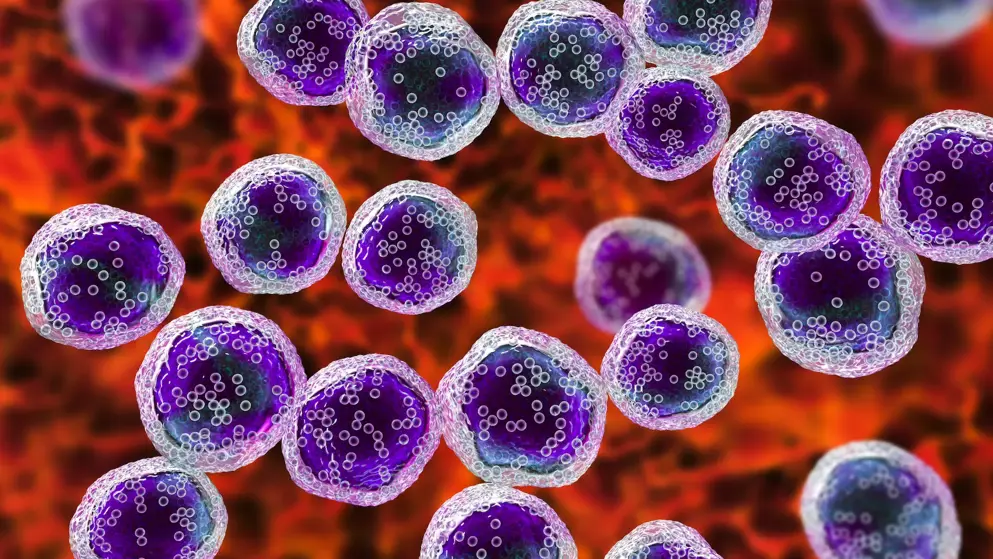
News
New four-year data show long-term survival in patients with large B-cell lymphoma treated With Yescarta in ZUMA-1 trial.-Kite/Gilead
Kite, a Gilead Company announced four-year follow-up data from the pivotal ZUMA-1 trial of Yescarta (axicabtagene ciloleucel) in adult patients with refractory large B-cell lymphoma (LBCL)
. Among Yescarta-treated patients (modified intent to-treat analysis, n=101) with a minimum follow-up of four years after a single infusion of Yescarta (median follow-up of 51.1 months), the Kaplan-Meier estimate of the four-year overall survival (OS) rate was 44 percent. The data were presented at the 62nd American Society of Hematology (ASH) Annual Meeting and Exposition (Abstract #1187).
Of 111 patients enrolled in the ZUMA-1 Phase II cohorts, Yescarta was administered to 101 patients with refractory LBCL, and the median time from leukapheresis to complete response (CR) was less than two months. There have been no Yescarta-related secondary malignancies reported.
“With close to half of patients still alive after a single infusion of axicabtagene ciloleucel, we are transforming the way relapsed or refractory large B-cell lymphoma can be treated,” said Frederick L. Locke, MD, ZUMA-1 Co-Lead Investigator and Vice Chair of the Department of Blood and Marrow Transplant and Cellular Immunotherapy at Moffitt Cancer Center in Tampa, Florida. “As a practicing oncologist I continue to see these patients in the clinic, and this overall survival data confirms the durability of CAR T-cell therapy in a patient population that previously exhausted all viable treatment options.”
Blood sample analyses provided by 21 patients who were treated with Yescarta and showed an ongoing response at a minimum of three years follow-up also demonstrated that 67 percent (n=14/21) had detectable CAR gene-marked cells and polyclonal B cells in blood. Additionally, normal B-cells were present in 91 percent (n=21/23) of evaluable patients. These results suggest that persistence of functional CAR T cells is not necessary for durable remissions in patients with refractory LBCL and may support long-term safety of the therapy.
“With these first-ever four-year data from a pivotal CAR T clinical trial in lymphoma, we continue to show the potential long-term survival of Yescarta in relapsed/refractory large B-cell lymphoma and push the boundaries of what is possible with this CAR T treatment,” said Ken Takeshita, MD, Kite’s Global Head of Clinical Development. “And equally importantly, we are encouraged by similar trends in long-term survival with real-world experience, with thousands of patients treated since Yescarta first became available.”
Kite has presented four-year survival data for Yescarta in the ZUMA-1 study of patients with refractory large B-cell lymphoma. Based on these data and other data presented at ASH, Kite believes that Yescarta could bring the hope of survival to patients with a number of other hematological malignancies.
Yescarta was the first CAR T-cell therapy to be approved by the FDA for the treatment of adult patients with relapsed or refractory large B-cell lymphoma after two or more lines of systemic therapy, including diffuse large B-cell lymphoma (DLBCL) not otherwise specified, primary mediastinal large B-cell lymphoma, and high grade B-cell lymphoma and DLBCL arising from follicular lymphoma. Yescarta is not indicated for the treatment of patients with primary central nervous system lymphoma.
Condition: Diffuse Large B Cell Lymphoma
Type: drug

